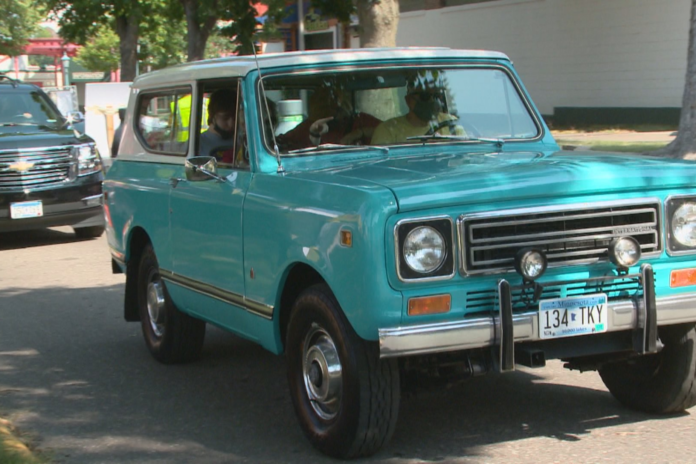
Gov. Tim Walz celebrated the enactment of new clean car standards in Minnesota during a Monday press conference.
The clean car standards are adopted from the state of California and will go into effect January 1 of 2024. With his Monday action, Walz directed the Minnesota Pollution Control Agency to formally adopt California’s regulations.
The regulations will require automakers to sell a certain percent of electric vehicles as part of their overall sales and meet a higher fuel-efficiency standard for all vehicles sold.
Consumer costs are expected to increase by $2,000 to $2,500 per vehicle, despite the administration saying it’s “saving Minnesotans money.”
“We are sending a strong signal … to the market to get ready for this,” Walz said Monday. “This is being led by market demand.”
He also added that “this is being led by the manufacturers” but later said he hopes that “as [the mandate] starts to move forward, manufacturers start to say start getting on the ground here, starting to put those [vehicles] out.”
The Minnesota Automobile Dealers Association (MADA) has long been an adamant opponent of the California clean car standards. MADA is a business trade association that represents 375 franchised new car and truck dealers that directly support over 20,000 jobs in Minnesota.
The new clean car standards “impose an artificial supply mandate on the Minnesota marketplace,” said MADA President Scott Lambert. “Incentives and infrastructure are the proven way to get more electric vehicles on the road.”
Lambert’s group believes the new regulations will put “bureaucrats in charge of Minnesota industry.”
“The administration has mischaracterized the implications of this rule and misled the citizens of Minnesota on its real effects,” he said. “Minnesota does not have an air quality problem like California’s.”
The new standards were allowed to move forward after Senate Republicans abandoned their goal of delaying the new rules for two years, as reported by Alpha News last month. The Center of the American Experiment (CAE) submitted 46 pages of comments against the “unnecessary and unreasonable” regulations.
Following Walz’s press conference, CAE reiterated that the new mandates “will reduce consumer freedom, put more strain on our electric grid, increase the cost of buying a new car, and produce zero measurable environmental benefit.”
“These regulations are all pain and no gain for Minnesotans because they will import California’s broken energy policies to our state,” said Isaac Orr, policy fellow for energy and the environment at CAE. “California has already begged residents not to charge their cars during 4 p.m. to 10 p.m. on several occasions to prevent rolling blackouts.”
Senate Majority Leader Paul Gazelka, who was criticized by CAE for “caving” on the mandates, said he’s not surprised Walz “continues to issue mandates after the last 18 months.”
“His emergency powers may be over but his ego trip is not, and it looks like ‘One Minnesota’ is just ‘Walz’s Minnesota,'” he said.
Megan Olson
Megan Olson is a 2020 graduate of the University of Minnesota with degrees in political science and history. She works in public affairs in addition to serving on the Legislative Advisory Council for School District 196. She is also on the school board for FIT academy, a charter school in Apple Valley.
















